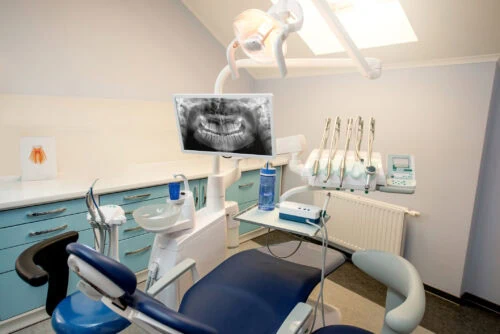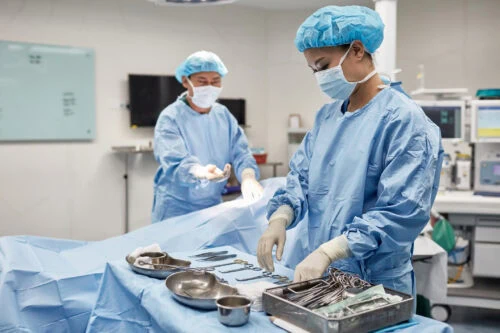Welcome to our guide on one of the most crucial aspects of the job interview process—punctuality. Whether you’re seasoned in professionalism or stepping into the job market for the first time, understanding the importance of interview punctuality can set you apart from other candidates.
This guide looks deep into why arriving on time for your interview is not just about making an excellent first impression but a key component of your overall professionalism. We’ll take you through practical tips for planning your arrival, overcoming potential delays, and how technology can aid in your punctuality. Additionally, we explore how punctuality aligns with presenting a professional image and respects the diverse cultures and practices of the workplace. With this guide, we aim to equip you with the knowledge and tools to confidently approach your interviews, reflecting your respect, commitment, and professionalism. Let’s turn punctuality into your strength in the interview process.
Why Punctuality and Professionalism Matters in Interviews
Punctuality is not just about arriving on time. It’s your first chance to show respect and professionalism. Many employers see punctuality as a sign of your reliability and commitment. This is especially true in interviews. Being on time shows you value the interviewer’s time.
Here’s why punctuality sets you apart:
- First impressions last: Arriving early gives a solid first impression. It says, “I’m ready and eager for this opportunity.”
- Reflects your work ethic: Being on time is often seen as a mirror of your attitude towards work. It suggests you’re organized and respectful of other people’s schedules.
- Demonstrates professionalism: Professionalism isn’t just about how you dress or speak. It’s also shown in how you manage time. Early arrival says you’re serious about the job.
Understanding cultural attitudes can be crucial for those from diverse backgrounds. In some cultures, punctuality might not be as rigorously enforced. However, in most professional settings in the U.S., being on time is expected.
Also, consider reading about embracing career change as a diverse candidate. It’s full of tips for navigating professional environments.
You can visit the U.S. Department of Labor’s website to learn more about workplace norms in the United States. It offers insights into what employers expect from job applicants.
Planning Your Route to Timely Interview Arrival
Getting to your interview on time starts with good planning. Here are simple steps to ensure timely interview arrival:
Know Your Destination
Research the interview location ahead of time. Use online maps to understand its distance and location. Pro tip: Check at different times on different days; don’t let that weekly Wednesday rush affect your interview.
Plan Your Journey
- Check traffic updates: Traffic can be unpredictable. Use apps like Waze to stay on top of real-time traffic conditions.
- Public transport users: Check the schedules on public transportation websites. Plan your route and have a backup option.
Leave Early
Allow extra time for your journey. Leaving early can account for any unexpected delays. By planning your route carefully, you’re showing your commitment to the opportunity and your professionalism.
Overcoming Obstacles to Punctuality with Professionalism
Even with excellent planning, sometimes things go wrong. That’s okay, and there are ways to fix it. Here’s how to manage common delays:
Unexpected Traffic
If traffic is heavier than expected, stay calm. Most traffic only adds a few minutes, and if you have left early there’s nothing to worry about. Otherwise, use navigation apps to find quicker routes if safe and possible.
Public Transport Delays
Public transport can be unreliable at times. Always have a plan B, like another bus route or a rideshare app.
Last-Minute Issues
Sometimes, last-minute problems can arise. Maybe you can’t find your shoes, or your car won’t start.
- Stay organized to minimize these issues. Prepare your clothes and documents the night before.
- If something comes up, act quickly to find a solution.
If You’re Running Late
Despite your best efforts, you might still run late. Here’s what to do:
- Inform Quickly: Call the interviewer as soon as you know you’ll be late. Explain and apologize; this shows you respect their time.
- Apologize: Once you arrive, apologize again. But then, let it go. Focus on the interview.
Interview punctuality shows professionalism and respect. But if delays happen, handling them well can show an even deeper level of professionalism. Always have a backup plan and communicate promptly if you’re delayed.
Virtual Interviews: Punctuality Still Counts
Interview punctuality is crucial, especially for virtual meetings. Here’s how to ensure professionalism from afar:
Test Your Setup
Before the interview, check your internet connection and video software. Problems here can delay your start.
Enter the Meeting Early
Log in a few minutes before your scheduled time. It shows you’re punctual and ready.
Prepare Your Space
Ensure your interview area is quiet and well-lit. It helps avoid last-minute scrambles to find a good spot.
Virtual interviews offer convenience but require the same level of professional preparation. By testing your technology and securing a professional setup, you respect the interviewer’s time and commitment to the opportunity. For tools and resources on preparing your technology and space, the guide on Preparing for a Video Interview offers valuable advice that also applies to creating an ideal interview environment.
Demonstrating Professionalism Through Punctuality
As we continue to cover, interview punctuality speaks volumes. It’s a clear sign of your professionalism. Here’s why:
Shows Respect
Arriving on time shows respect for the company and the interviewer’s time. It says you value their time as much as yours.
Preparedness
Being punctual also shows you’re well-prepared. It suggests you’re likely to handle job tasks with the same diligence.
Stress Reduction
Early arrival can lower your stress. It gives you time to breathe and get ready for the interview. Confidence is key, after all.
Remember, professionalism extends beyond punctuality. Dress appropriately and communicate clearly. For tips on professional attire, check out Dressing for Success in an Interview. Also, the guide on showcasing diversity in your resume provides excellent advice on presenting yourself professionally, which is equally essential for interviews.
The Impact of Cultural Differences on Interview Punctuality
Understanding cultural differences is vital for interview preparation and punctuality. Different cultures view time differently. Here’s what to keep in mind:
Research the Company’s Culture
Look into the company’s approach to time. Some might value precise punctuality, while others value a more flexible schedule.
When in Doubt, Be Early
If you’re unsure, arriving early is safest. It shows you’re taking no chances with your professional image.
Ask About Preferences
It can be helpful to ask the recruiter about time expectations. This shows you’re thoughtful and adaptive.
Cultural understanding can significantly benefit your interview process. It demonstrates awareness and respect for diversity. To explore cultural perspectives, consider learning from Geert Hofstede’s Cultural Dimensions. This knowledge not only helps in interviews but broadens your professional adaptability.
Using Technology to Enhance Interview Preparation Punctuality
Technology can be a big help in ensuring you’re on time. It offers tools to manage your interview preparation and punctuality:
Digital Calendars
Set reminders for your interview date and time. Use apps like Google Calendar for alerts.
Traffic Apps
Apps like Google Maps keep you updated on traffic. They help plan the best route.
Practice Runs
If time allows, make the trip! Otherwise, use map apps to do a trial run. Familiarize yourself with the route to reduce travel anxiety.
Technology is a powerful ally in staying punctual for your interview. By utilizing these tools, you can cut down on unforeseen delays and present your professional image in the best light. After all, punctuality to your interview prefaces your professionalism and commitment to the role.
Beyond Punctuality: Ways to Project Professionalism in an Interview
Interview punctuality is crucial, but there’s more to a professional image. Here are a few additional tips:
Dress Appropriately
Choose attire that fits the company culture, some companies require suits and ties, while others are more relaxed and casual. Regardless, ensure your outfit is clean and well-pressed or wrinkle-free. First impressions count.
Know Your Resume
Be ready to discuss your resume in detail. Understand your experiences and how they relate to the job, but most of all, know how to articulate them. Stuttering through your resume can make you seem ungenuine and unprepared.
Practice Your Answers
Rehearse answers to common interview questions. This shows you’re prepared and serious about the job. Practice also boosts confidence, hearing a question you have a rehearsed answer for will allow you to shine and set the stage for your professionalism.
Follow Up
Send a thank-you note after the interview. It’s polite and keeps you in the interviewer’s mind. This can favorably persuade a hiring manager if they’re undecided on whom to hire.
Together, these efforts show commitment and respect for the interview process. They complement your punctuality, enhancing your professionalism during the interview. They demonstrate you’re a well-rounded candidate, ready for the job challenges.
FAQs
How early should I arrive for my interview?
Arriving 10-15 minutes early is ideal. It shows punctuality without being too early.
What if I can’t avoid being late?
Contact the interviewer as soon as possible. Explain briefly and apologize for the delay.
How do I manage my time on the day of the interview?
Plan your route and set reminders. Allow extra time for unforeseen delays.
Do virtual interviews require the same level of punctuality?
Yes, it’s equally important. Log in a few minutes early to show you’re prepared and respectful of their time.
Can cultural differences affect perceptions of punctuality?
Yes, cultures view time differently. Research the company’s culture and adjust your punctuality accordingly.
Conclusion
Interview punctuality is a fundamental aspect of demonstrating professionalism. It reflects your respect for the interviewer’s time, showcases your commitment, and sets the tone for the rest of the interview. Remember, arriving on time, or even a few minutes early, can significantly affect how potential employers perceive you. Beyond punctuality, dressing appropriately, being well-prepared to discuss your resume, and following up after the interview are all crucial steps to project a professional image.
If you’re looking for the right diversity job boards, eager to kickstart or ready to advance your career with a diversity-focused employer, we encourage you to join Diversity Employment and upload your resume today. Explore various resources, from job listings to career development advice tailored for diverse job seekers. Together, let’s navigate the path toward your dream job with professionalism, inclusivity, and respect for all cultures.




